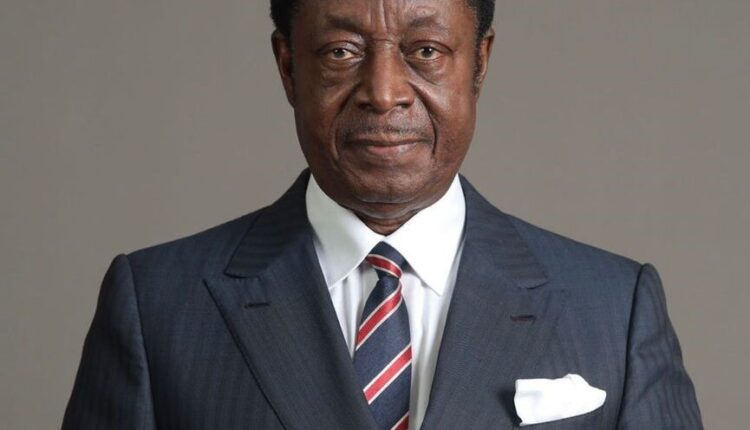The Attorney-General (AG) has officially dropped the criminal case against former Finance Minister Dr. Kwabena Duffuor and seven others, who were standing trial over the collapse of uniBank.
The decision was announced on Tuesday, July 22, 2025 by Deputy Attorney-General Dr. Justice Srem-Sai, through a press release posted on his Facebook wall. He stated that the AG had entered a nolle prosequi, a legal declaration indicating that the State no longer wishes to pursue the case.
This move brings an end to a high-profile prosecution that had been ongoing since 2020.
The press statement issued by the AG’s office, explained that the State had set a condition for reconsidering prosecutions involving financial crimes. This condition required that at least 60% of the alleged losses be recovered before prosecution could be reviewed, and this has been met.
“Following prolonged negotiations and engagements, the accused persons in The Republic v. Kwabena Duffour & 7 Others case have met this recovery threshold. Accordingly, in furtherance of public interest, and considering the significant recoveries made for the State, the Honourable Attorney-General has satisfied himself that continuing with the prosecution will not serve any additional public purpose.
This decision, however, does not imply an absence of wrongdoing nor a vindication of any conduct. It is a pragmatic step in line with the overarching national interest of recovering State resources,” the statement read.
The AG’s office further clarified that the decision “does not imply an absence of wrongdoing nor a vindication of any conduct.” It described the move as “a pragmatic step in line with the overarching national interest of recovering State resources.”
The AG also reaffirmed his office’s commitment to justice, accountability, and protecting the public purse. He emphasized the importance of upholding the rule of law while being practical in decisions that serve the wider interest of the nation.
The case, officially titled The Republic v. Kwabena Duffuor & 7 Others (CR/0248/2020), was a major part of Ghana’s financial sector clean-up launched in 2018. The initiative sought to restore stability in the banking sector while holding individuals accountable and recovering State funds misused or lost through alleged financial misconduct.
Dr. Duffuor, Bank of Ghana’s former Governor and Finance Minister, founded uniBank, which was declared bankrupt in August 2018. The Bank of Ghana (BoG) said shareholders and related parties had taken GHS 5.3 billion in loans and funds without proper approval.
Dr. Duffuor and the other accused individuals were charged with crimes including theft and money laundering.
At the time of the charges, court documents alleged that Dr. Duffuor received GHS 663.3 million (about $122 million then), knowing it had been obtained by means of a criminal offense. Among those also charged was a former Deputy Governor of the Bank of Ghana, Johnson Asiama, accused of facilitating some of the unlawful transactions.
The seven other individuals charged alongside Dr. Duffuor and Dr. Asiama included key management members of the defunct uniBank: Kwabena Duffuor II – Son of Dr. Duffuor and former CEO of uniBank, Ekow Nyarko Dadzie-Dennis – Chief Operating Officer of uniBank, Elsie Dansoa Kyereh – Executive Head of Corporate Banking, Jeffery Amon – Senior Relationship Manager, Benjamin Ofori – Executive Head of Credit Control, Kwadwo Opoku Okoh – Financial Control Manager.
Background:
Ghana’s financial sector faced a severe crisis between 2017 and 2019. Several local banks collapsed, including uniBank, UT Bank, and Capital Bank. The Bank of Ghana cited poor corporate governance, risky lending practices, and weak financial structures as reasons behind the failure of these institutions.
To stabilize the sector, the government launched a clean-up exercise that led to the creation of Consolidated Bank Ghana (CBG) and the revocation of several licenses. The cost of this clean-up was estimated to be in the billions of Ghana cedis, and it placed a heavy financial burden on taxpayers.
Since then, the Attorney-General’s Office, working with the Economic and Organised Crime Office (EOCO), has pursued cases against individuals and institutions deemed responsible for the crisis.


Comments are closed.